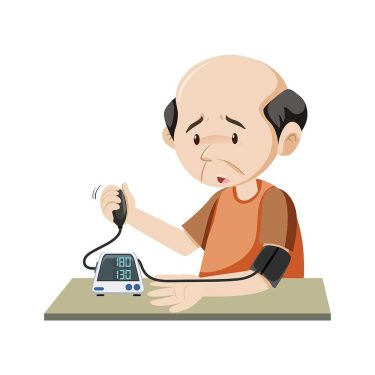Understanding Hypertension
Hypertension, commonly known as high blood pressure, is a prevalent health condition affecting millions worldwide. It is characterized by consistently elevated pressure of blood against artery walls, which can lead to serious health risks if not properly managed. Addressing hypertension is crucial, as it significantly impacts long-term health outcomes.
Causes of Hypertension
Understanding the underlying causes of hypertension is essential for effective management. Several factors contribute to the development of this condition, including:
- Genetics and Age: A family history of hypertension increases risk, while aging naturally decreases the flexibility of blood vessels, contributing to elevated blood pressure.
- Lifestyle Choices: Diets high in sodium, lack of physical activity, excessive alcohol consumption, and smoking are significant contributors to hypertension.
- Underlying Health Conditions: Conditions such as obesity, diabetes, and chronic kidney disease can exacerbate hypertension, necessitating comprehensive management strategies.
Hypertension Medications
Managing hypertension often involves medication to control blood pressure levels and reduce associated health risks. It is important to work closely with healthcare professionals to determine the most suitable treatment plan, tailored to individual health needs. Common classes of antihypertensive drugs include:
- Diuretics: Help eliminate excess sodium and water, reducing blood volume and lowering blood pressure.
- Angiotensin-Converting Enzyme (ACE) Inhibitors: Block the production of angiotensin II, which narrows blood vessels, thus lowering blood pressure.
- Angiotensin II Receptor Blockers (ARBs): Prevent angiotensin II from affecting blood vessels, promoting relaxation and lowering blood pressure.
- Calcium Channel Blockers: Prevent calcium from entering heart and blood vessel walls, relaxing blood vessels and reducing blood pressure.
- Beta-Blockers: Reduce heart rate and the force of heart contractions, leading to lower blood pressure.
- Alpha-Blockers: Relax certain muscles, keeping small blood vessels open, thereby improving blood flow and reducing blood pressure.
- Combination Medications: Combining drugs from different classes may enhance blood pressure control.
Strict adherence to prescribed medication regimens and regular blood pressure monitoring are essential components of effective hypertension management. Continuous communication with healthcare providers helps in adjusting medications for optimal results.
Managing Hypertension and Headaches
Hypertension can sometimes lead to headaches. Effective management of high blood pressure often reduces the frequency and severity of these headaches. Persistent headaches should prompt a consultation with healthcare professionals to rule out other potential causes and adjust treatment as necessary. Additionally, lifestyle modifications such as stress management, regular exercise, and a healthy diet are beneficial for overall health and can complement medication therapy.
Important Considerations When Using Olmesmart Online
Olmesmart is a medication that can be ordered online for the management of hypertension. However, there are several important considerations:
- Consultation with Healthcare Professionals: Before starting or changing any medication, including Olmesmart, consult healthcare providers to ensure it aligns with your specific health needs.
- Adherence to Dosage Instructions: It is crucial to follow the prescribed dosage instructions for Olmesmart carefully. Regular blood pressure monitoring is also important, and any concerns should be communicated to your healthcare provider.
- Potential Side Effects: While Olmesmart is generally well-tolerated, some individuals may experience side effects such as dizziness or fatigue. Report any unusual or severe side effects to your healthcare provider promptly.
Conclusion
Ordering Olmesmart online offers a convenient option for managing hypertension. The combination of easy accessibility and the medication’s effectiveness allows individuals to take proactive steps in managing their health. However, professional guidance and regular monitoring are vital to ensure a safe and effective hypertension management journey. Always consult with healthcare providers to tailor the treatment plan to your specific needs and monitor your progress regularly.



